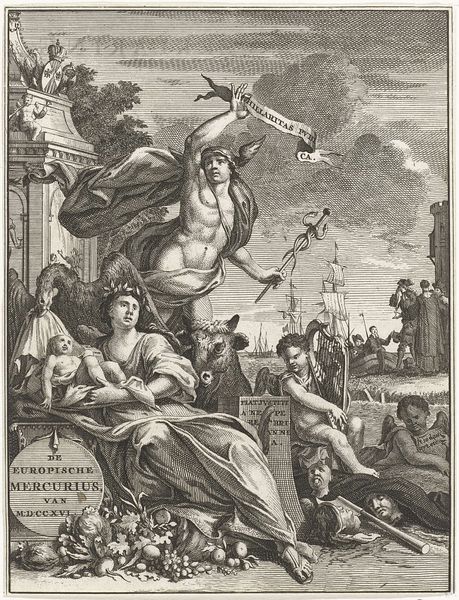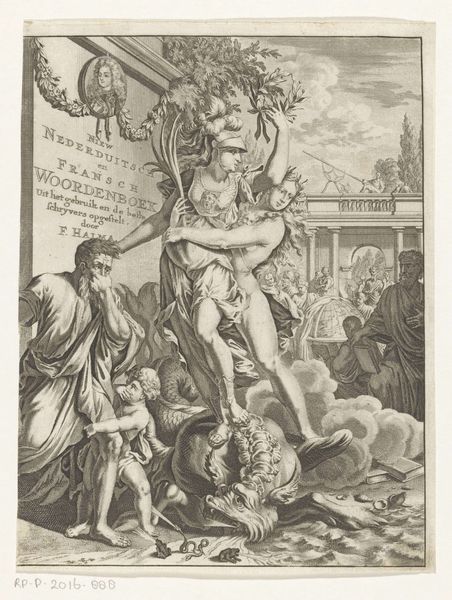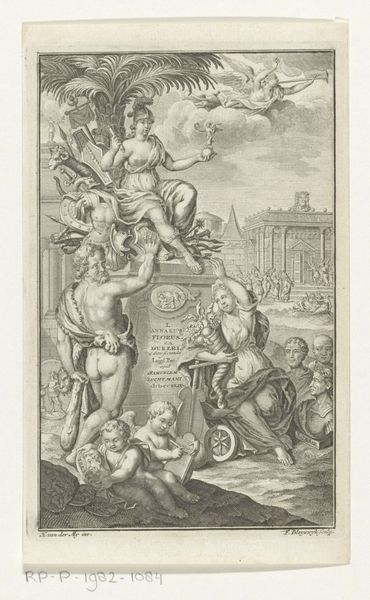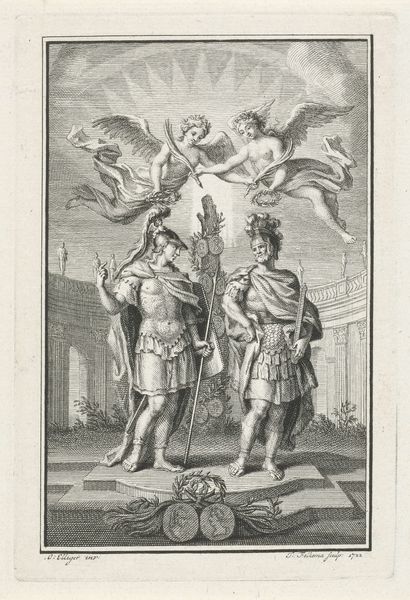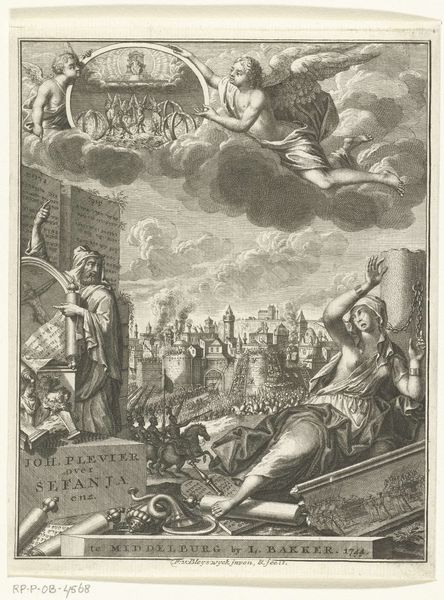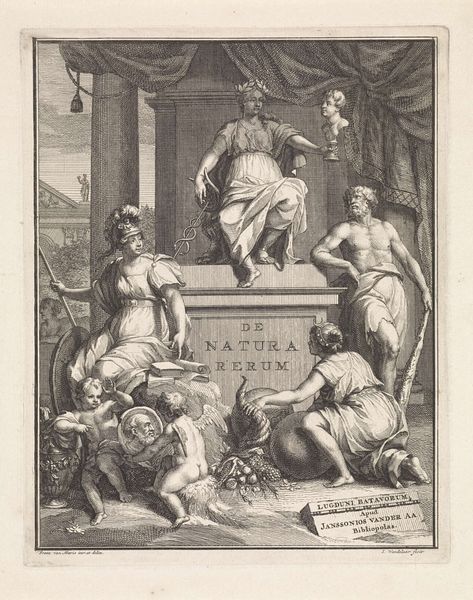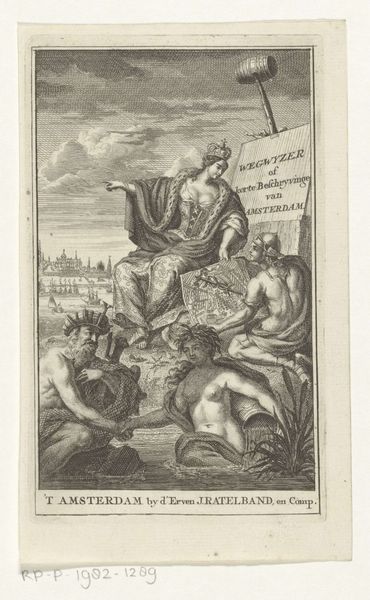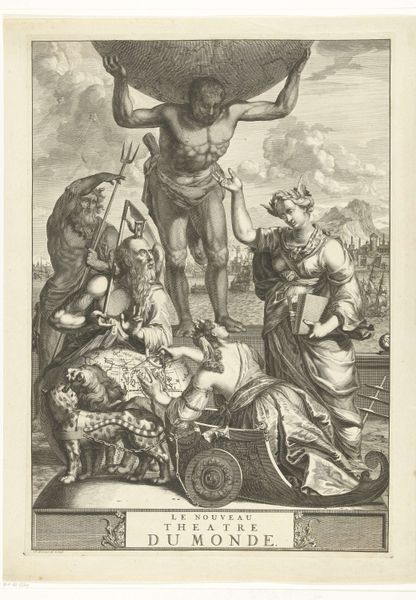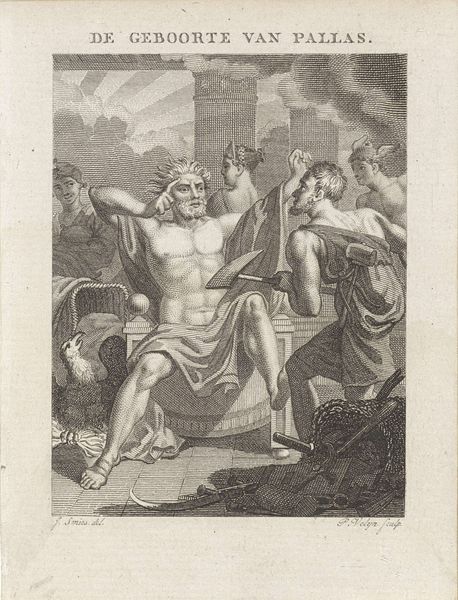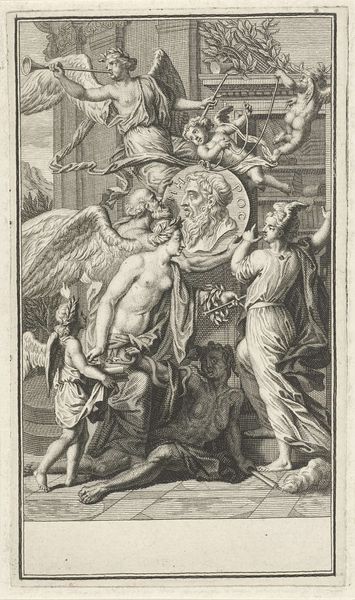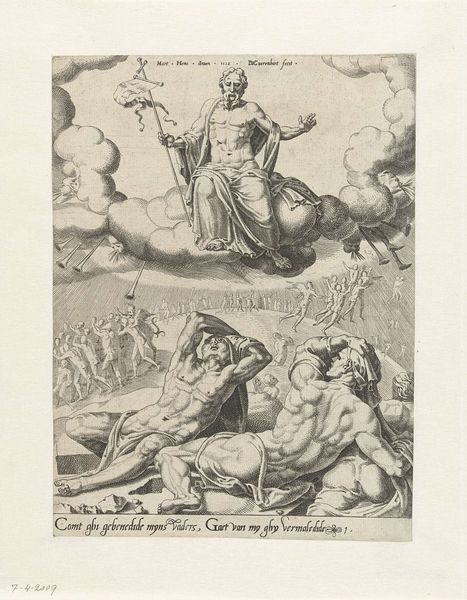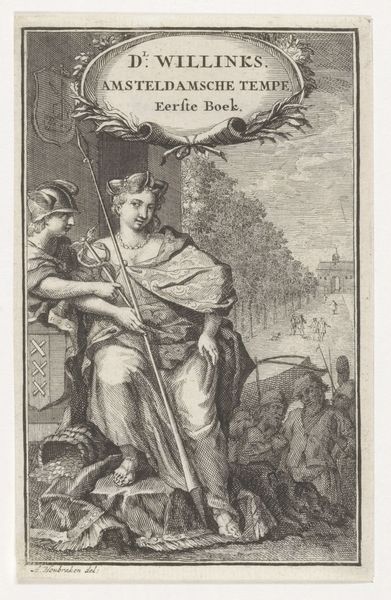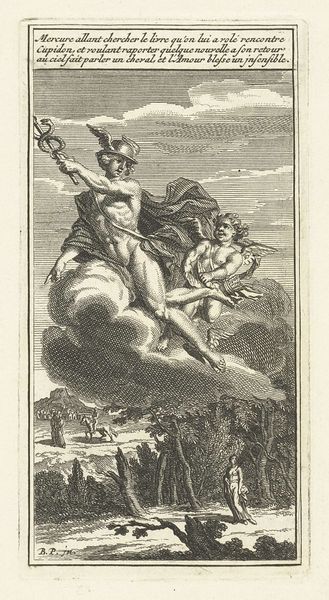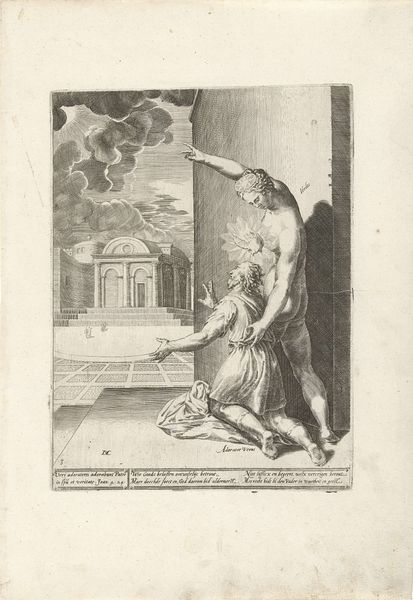
print, engraving
allegory
narrative-art
baroque
landscape
classical-realism
figuration
classicism
cityscape
history-painting
academic-art
engraving
Dimensions: height 156 mm, width 117 mm
Copyright: Rijks Museum: Open Domain
Curator: This print, titled "Allegory of Roman Antiquity," possibly dates from 1681-1799, and is currently housed in the Rijksmuseum. It's attributed to François van Bleyswijck. At first glance, the precision of the engraving strikes me – every line seems deliberate, creating this air of classical order. Editor: Order is definitely one word for it. But my first thought looking at this… chaos! There's so much happening. Figurative representations seem almost piled on top of each other in a not-so-subtle display of Roman might. It makes my head spin! Curator: Well, think of it in its time. Allegories like these were common; artists used symbols to convey ideas, usually history or virtue, with these grand landscapes often acting as the backdrop. Here, the figure might personify the wisdom of the Romans. Editor: Absolutely, it speaks to an era deeply invested in referencing the grandeur and legitimacy of Rome. It’s trying so hard to impress us with Roman ideals. Who does it serve, who is idealized and uplifted, and, of course, who is obscured from view to enable such heroic narratives? Look closely and it reveals some important insight into the period. Curator: What I also appreciate is how Bleyswijck balances realism and symbolism. The architecture in the cityscape feels grounded, while the allegorical figures lift the scene into a more abstract realm. The text inscribed within the tablet held by the winged figure almost reads as stage direction – perhaps that could be one explanation for this 'chaotic' effect. Editor: You make a compelling case, I confess. Still, the academic perfection is so obvious. It almost feels as if the artist has set out to produce an official account… in my eyes it would have benefitted from a healthy dose of irony. Curator: Irony wasn't exactly in high demand during the Baroque era! For Bleyswijck, and the people he was catering for, there may have been very little need to question or critique. Maybe the stability that this imagery projects, helped viewers, however briefly, to order their lives? Editor: Yes, but such stability is not innocent or neutral; it has always served some at the expense of others. What we must never forget is that even images seemingly of an age long since passed, like this, hold resonances that can impact the present. I leave you to muse over that thought. Curator: Well, I hope that our little discussion has helped illuminate some facets of this detailed artwork, whether you respond to the chaotic accumulation of imagery or celebrate the clear intention behind this engraving. It certainly contains layers of historical and social understanding ripe for conversation.
Comments
No comments
Be the first to comment and join the conversation on the ultimate creative platform.
